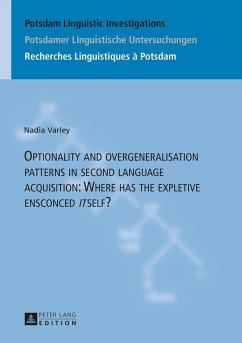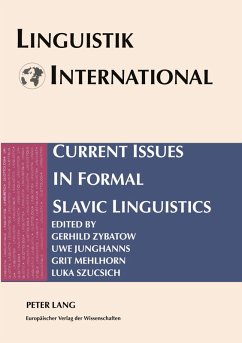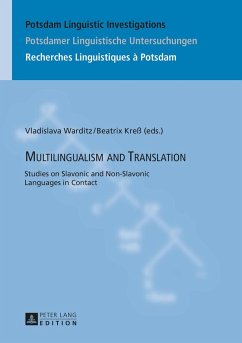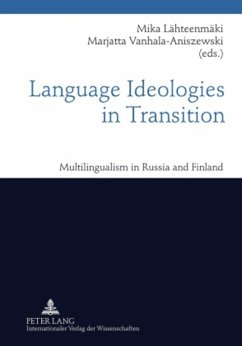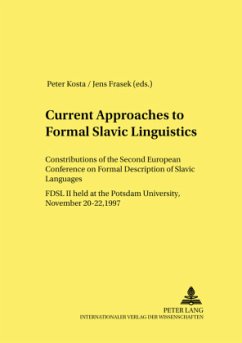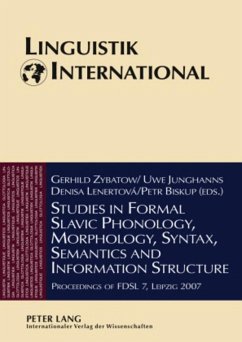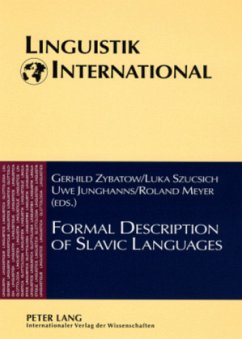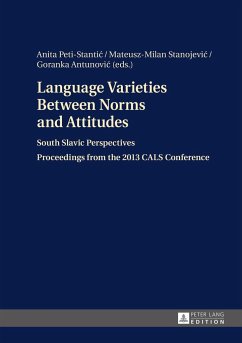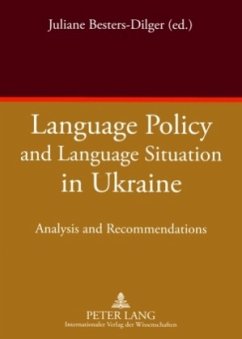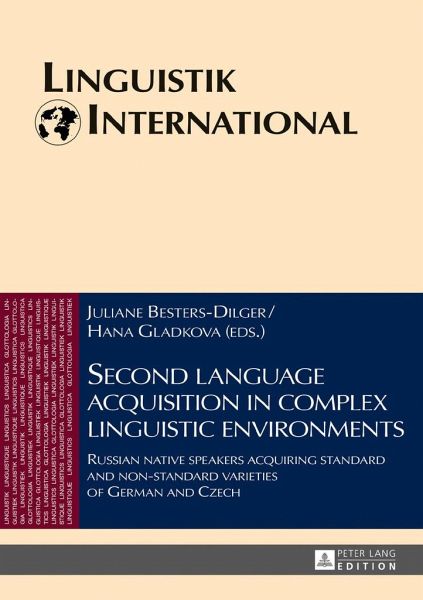
Second language acquisition in complex linguistic environments
Russian native speakers acquiring standard and non-standard varieties of German and Czech
Herausgegeben: Zybatow, Lew; Besters-Dilger, Juliane; Gladkova, Hana
Versandkostenfrei!
Versandfertig in 6-10 Tagen
91,25 €
inkl. MwSt.

PAYBACK Punkte
0 °P sammeln!
Russian-speaking immigrants residing in the Czech Republic or Germany are faced with the challenge of acquiring the Slavic (Czech) or Non-Slavic (German) language of the new environment. This process is influenced by their native language. The volume empirically analyses the acquisition of a related language compared to that of a non- or distantly related one and explores how the non-homogeneous language of the new environment - situation of diglossia in the Czech Republic, diaglossia in Germany - influences this acquisition. It additionally examines the impact of several sociolinguistic facto...
Russian-speaking immigrants residing in the Czech Republic or Germany are faced with the challenge of acquiring the Slavic (Czech) or Non-Slavic (German) language of the new environment. This process is influenced by their native language. The volume empirically analyses the acquisition of a related language compared to that of a non- or distantly related one and explores how the non-homogeneous language of the new environment - situation of diglossia in the Czech Republic, diaglossia in Germany - influences this acquisition. It additionally examines the impact of several sociolinguistic factors on L2 acquisition, especially age.





